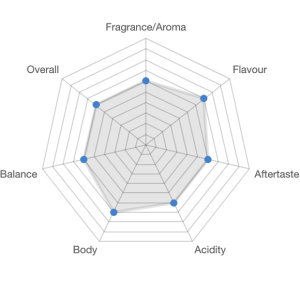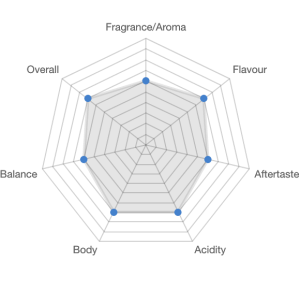BEAN DETAILS
- Origin UGANDA
- Region Mbale District
- Producer Selected small holder farmers
- Packing 60kg
- Harvest October – January
- Score 80
- Type arabica
- Varietals Typica, Kent
- Processing Hand picked, washed
- Altitude 1500 – 2500
- Prep Hand sorted
FLAVOUR DETAIL
CUPPING
Nutty, blackcurrant, chocolate, balanced, solid body
PROFILE

ABOUT THE PRODUCER
Bugisu Small Holders
The Bugisu region lies to the East of Kampala and stretching right to the Kenyan border. The terrain is a mix of gentle plains, rainforest, rivers and streams. Drought is rare, the general climate is wet and cool. The local Bugisu people are highly regarded for their coffee growing skills and farm around 2ha, usually a mix of coffee plants interspersed with food crops.
The coffee cherries are sold to small micro-mills for washing and drying. The micro- mills often set up small seedling nurseries and training for the farmers. The mills also provide essential transport and communication links to the remoter areas.









